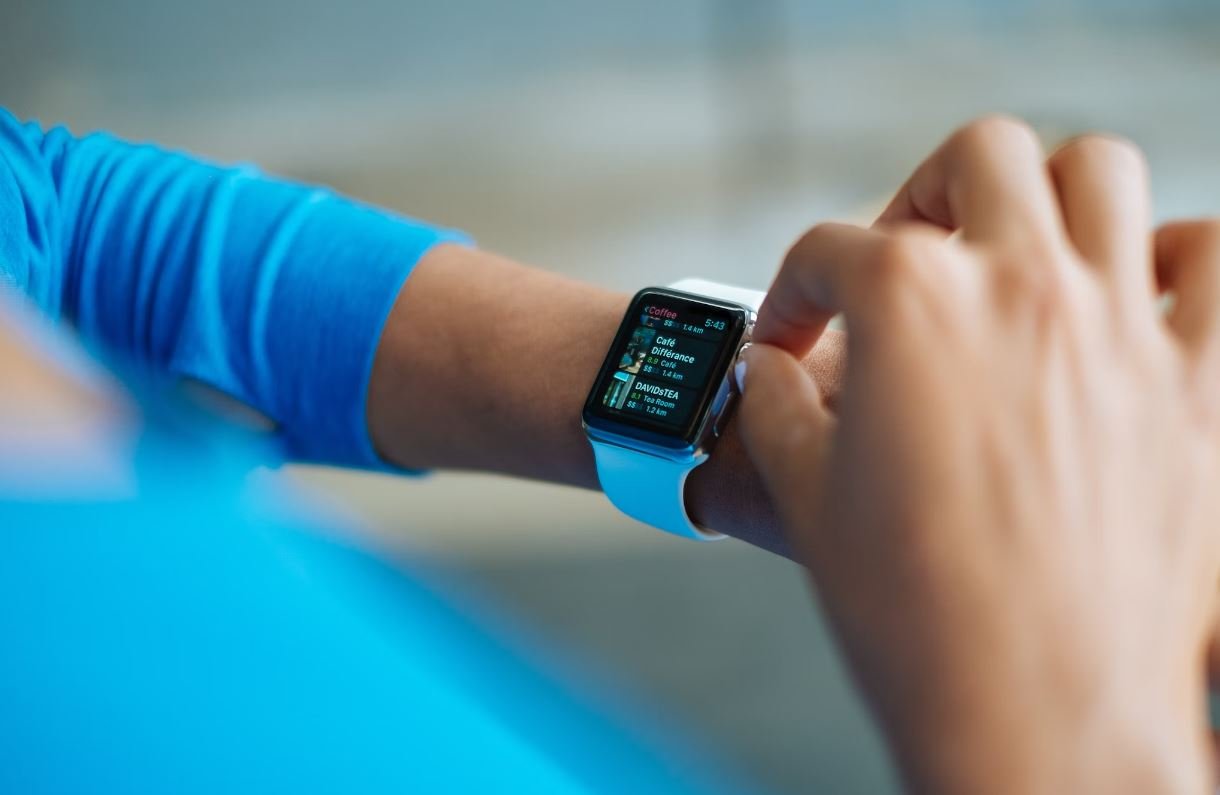How is AI Used in Digital Marketing?
The rise of artificial intelligence (AI) has revolutionized many industries, and digital marketing is no exception. AI is now being used extensively in various aspects of digital marketing, enabling businesses to streamline processes, personalize experiences, and improve overall marketing performance. In this article, we will explore how AI is being leveraged in digital marketing and the impact it has on businesses.
Key Takeaways
- AI is transforming digital marketing by automating repetitive tasks, enhancing personalization, and improving performance.
- AI-driven chatbots provide immediate customer service, increasing customer satisfaction and reducing response time.
- AI algorithms analyze vast amounts of data to uncover valuable insights for targeted marketing campaigns.
- AI-powered recommendation engines boost sales by suggesting personalized products or content to customers.
- AI helps optimize ad targeting and bidding strategies in real-time, maximizing the return on investment.
Automating Tasks and Enhancing Personalization
AI is particularly valuable in automating repetitive and time-consuming tasks in digital marketing. It enables marketers to focus on high-level strategy and creative efforts. AI-powered systems can generate content, schedule social media posts, and perform data analysis with minimal human intervention, saving time and effort for marketers.
AI can analyze user data and preferences in real-time, allowing businesses to deliver highly personalized marketing messages to individual customers.
Insights from Data Analysis
AI algorithms can quickly analyze large volumes of data to identify patterns, customer behaviors, and trends. This provides valuable insights for businesses to optimize their marketing strategies and make data-driven decisions. Marketers can understand customer preferences, preferences, and demographics better, leading to more targeted and effective marketing campaigns.
By utilizing AI, businesses can gain a deeper understanding of their target audience, allowing them to tailor their marketing efforts more effectively.
| Statistic | Value |
|---|---|
| Global AI in marketing spending by 2025 | $50 billion |
| Percentage of marketers who use AI for better personalization | 61% |
| Percentage of marketers who believe AI is essential to their strategies | 72% |
Improving Customer Service with AI Chatbots
AI-powered chatbots are becoming increasingly common in digital marketing. These intelligent virtual assistants can provide immediate customer service, answer queries, and guide users through the buyer’s journey. Chatbots enhance customer engagement and experience, reducing response time and increasing customer satisfaction.
Chatbots can handle multiple customer queries simultaneously, providing round-the-clock support and improving overall customer service.
Achieving Personalized Recommendations
AI enables businesses to offer personalized recommendations to customers based on their preferences, browsing history, and purchase behavior. Recommendation engines powered by AI suggest relevant products, services, or content to customers, increasing the likelihood of conversions and enhancing customer loyalty.
With AI-driven recommendations, businesses can create more engaging and customized experiences for their customers, fostering brand loyalty.
| Benefit | Description |
|---|---|
| Increased efficiency | AI automates tasks, saving time and effort for marketers. |
| Enhanced personalization | AI analyzes user data and preferences, allowing tailored marketing messages. |
| Better customer service | AI chatbots provide immediate assistance, reducing response time and improving satisfaction. |
Optimizing Advertising Strategies
AI-powered systems enable businesses to optimize their advertising strategies by analyzing real-time data. By considering user behavior, preferences, and other factors, AI can help determine the best ad targeting and bidding strategies, maximizing the return on investment (ROI) for digital advertising campaigns.
AI’s ability to adapt and optimize advertising strategies in real-time ensures businesses can effectively reach their target audience and achieve desired marketing outcomes.
Conclusion
AI is revolutionizing digital marketing by automating tasks, enhancing personalization, and providing valuable insights. Through the use of AI-driven chatbots, recommendation engines, and data analysis algorithms, businesses can streamline their marketing efforts, improve customer engagement, and optimize advertising strategies. With the growing adoption of AI in digital marketing, businesses can stay competitive in today’s constantly evolving landscape.

Common Misconceptions
Artificial Intelligence in Digital Marketing
There are several common misconceptions surrounding the use of Artificial Intelligence (AI) in digital marketing. These misconceptions often stem from a lack of understanding or inaccurate information. In order to gain a better understanding of how AI is used in this field, it is crucial to debunk these misconceptions.
- AI replaces human marketers entirely
- AI takes away jobs from human marketers
- AI results in impersonal interactions with customers
One common misconception is that AI replaces human marketers entirely. However, this is not the case. While AI can automate certain tasks and processes, it does not eliminate the need for human involvement. AI is a tool that assists marketers in making data-driven decisions and optimizing campaigns, but it does not possess the creativity, intuition, and strategic thinking abilities that human marketers bring to the table.
- AI enhances productivity and efficiency
- AI empowers marketers with valuable insights
- AI enables personalized and targeted marketing
Another misconception is that AI takes away jobs from human marketers. In reality, AI technology is designed to complement and enhance the work of human marketers, not replace them. By automating repetitive tasks, AI frees up marketers’ time, allowing them to focus on more strategic and creative aspects of their roles. AI also provides marketers with valuable insights and data analysis, enabling them to make better informed decisions and drive more effective marketing campaigns.
- AI helps optimize customer experiences
- AI allows for real-time data analysis
- AI supports personalized content creation
One misconception regarding AI in digital marketing is that it results in impersonal interactions with customers. However, AI technology can actually help personalize and enhance customer experiences. Through the use of chatbots, AI-powered algorithms, and machine learning, marketers can deliver tailored recommendations, understand customer preferences, and provide timely responses. AI enables marketers to deliver personalized content and offers, resulting in more engaging and meaningful interactions with customers.
- AI does not replace the need for human creativity and intuition
- AI requires proper training and human oversight
- AI is not a magical solution to all marketing challenges
In conclusion, it is important to dispel the misconception that AI completely replaces the need for human creativity and intuition in digital marketing. While AI can analyze vast amounts of data and identify patterns, it still requires human guidance and interpretation. Additionally, AI systems need to be properly trained and monitored by human marketers to ensure accuracy and effectiveness. Lastly, it is crucial to understand that AI is not a magical solution that can solve all marketing challenges. It is a powerful tool that, when used in conjunction with human expertise, can greatly enhance digital marketing strategies and improve overall performance.

AI Chatbots in Digital Marketing
In the realm of digital marketing, AI chatbots have become increasingly popular for businesses seeking to enhance customer engagement. These interactive programs, powered by artificial intelligence, are capable of simulating human conversation and providing valuable information. Below is a table showcasing the benefits and applications of AI chatbots:
| Benefits | Applications |
|---|---|
| 24/7 availability | Customer support |
| Handling multiple queries simultaneously | Lead generation |
| Improved response time | Product recommendations |
| Personalized interactions | Social media management |
| Data collection and analysis | Feedback collection |
AI-Driven Content Creation
In the field of content creation, artificial intelligence has started to reshape the way we generate and distribute information. By leveraging AI algorithms, marketers can produce compelling content tailored to their target audience. The following table highlights key areas where AI is making a significant impact:
| Areas | Benefits |
|---|---|
| Automated content generation | Saves time and resources |
| Content optimization | Increase in search engine rankings |
| Language translation | Facilitates global reach |
| Content curation | Improved content recommendations |
| Topic research | Identifies trending topics |
AI-Powered Email Marketing
Email marketing campaigns can benefit greatly from the utilization of AI, allowing for increased personalization, higher open rates, and improved conversion rates. The table below outlines the various aspects of AI in email marketing:
| Aspects | Benefits |
|---|---|
| Advanced segmentation | Deliver tailored content |
| Automated sending | Improved efficiency |
| Behavioral tracking | Targeted follow-ups |
| A/B testing | Optimize email performance |
| Dynamic content generation | Personalized email experiences |
AI-Enhanced Social Media Marketing
Social media marketing has evolved substantially with the integration of AI technologies. Today, AI plays a crucial role in automating processes, analyzing data, and optimizing advertising strategies on popular social media platforms. Explore the applications of AI in social media marketing through the table below:
| Applications |
|---|
| Automated social media posting |
| Sentiment analysis |
| Target audience identification |
| Influencer marketing |
| Ad campaign optimization |
AI in Influencer Marketing
Influencer marketing, an increasingly popular strategy for promoting products or services, has also adopted AI technologies to streamline processes and improve campaign outcomes. The following table showcases the impact of AI in influencer marketing:
| Impact Areas |
|---|
| Influencer discovery |
| Performance tracking |
| Fraud detection |
| Content monitoring |
| ROI analysis |
AI-Driven SEO Optimization
When it comes to search engine optimization (SEO), AI plays a pivotal role in optimizing websites for improved visibility and ranking on search engine results pages. Uncover the areas AI is revolutionizing in SEO through the following table:
| Areas | Benefits |
|---|---|
| Keyword research | Identification of high-ranking keywords |
| Website analytics | Deep insights into user behavior |
| Competitor analysis | Strategic advantage identification |
| On-page optimization | Optimized content structure |
| Backlink analysis | Identification of authoritative links |
AI-Powered PPC Advertising
Pay-per-click (PPC) advertising campaigns can significantly benefit from AI-driven optimization, allowing businesses to achieve higher conversion rates and better return on investment (ROI). The table below presents the ways AI enhances PPC advertising:
| Enhancements |
|---|
| Automated bid management |
| Ad targeting optimization |
| Performance tracking and adjustment |
| Ad copy optimization |
| Competitor analysis |
AI in Data Analytics and Insights
Data analytics plays an essential role in digital marketing, and AI has revolutionized this domain by empowering marketers with powerful tools for data processing and extracting actionable insights. The table below highlights the applications of AI in data analytics:
| Applications |
|---|
| Customer segmentation |
| Trend analysis |
| Predictive analytics |
| Competitor analysis |
| Real-time data processing |
AI-Powered Conversion Rate Optimization
Conversion rate optimization (CRO) is crucial for businesses seeking to maximize their website’s performance and increase their customer acquisition. By utilizing AI algorithms, marketers can perform experimentation and personalization to enhance conversion rates. Explore the impact of AI in CRO through the following table:
| Impact Areas |
|---|
| A/B testing |
| Behavioral analysis |
| UX optimization |
| Predictive modeling |
| Dynamic content personalization |
Throughout the digital marketing landscape, AI has made significant strides in transforming various areas of the industry. From the implementation of AI chatbots for enhanced customer engagement to AI-driven SEO optimization for improved website visibility, businesses are leveraging these technologies to gain a competitive edge. As AI continues to advance, the potential for even greater innovation and more tailored marketing strategies becomes increasingly evident, promising an exciting future for digital marketing.
Frequently Asked Questions
How does artificial intelligence (AI) contribute to digital marketing?
AI enhances digital marketing by providing data-driven insights, automating repetitive tasks, personalizing user experiences, and optimizing advertising campaigns.
What is the role of AI in data analysis for digital marketing?
AI analyzes vast amounts of data to identify patterns, trends, and customer preferences. It helps marketers make informed decisions and pinpoint areas for improvement in their digital marketing strategies.
Can AI automate tasks in digital marketing?
Yes, AI can automate tasks such as lead nurturing, content creation, social media posting, and customer support. This automation saves time and allows marketers to focus on more strategic activities.
How does AI enable personalization in digital marketing?
AI algorithms can analyze user behavior, demographics, and preferences to deliver personalized content, product recommendations, and targeted advertisements. This enhances the customer experience and increases conversion rates.
What is AI’s role in chatbots and customer support?
AI-powered chatbots can engage with customers in real-time, answer their queries, and provide personalized assistance. They can also analyze customer sentiment and escalate complex issues to human agents when necessary.
How can AI improve digital advertising campaigns?
AI algorithms can optimize digital advertising campaigns by analyzing historical data, predicting consumer behavior, and identifying the most effective targeting and bidding strategies. This leads to higher ad performance and ROI.
Can AI analyze social media data for digital marketing purposes?
Yes, AI can analyze social media data, including posts, comments, and user interactions, to understand customer sentiment, identify influencers, and gauge brand reputation. Marketers can then adapt their strategies accordingly.
What are some AI tools used in digital marketing?
There are various AI tools available for digital marketing, including chatbot platforms, predictive analytics software, recommendation engines, sentiment analysis tools, and programmatic advertising platforms.
How does AI impact search engine optimization (SEO)?
AI helps marketers optimize their website’s SEO by analyzing search trends, identifying relevant keywords, and suggesting content optimizations. AI-powered algorithms also help search engines deliver more accurate and relevant search results.
Is AI capable of predicting consumer behavior in digital marketing?
AI uses machine learning algorithms to analyze historical data and patterns, enabling it to make accurate predictions about consumer behavior. This helps marketers identify target audiences, anticipate their needs, and deliver tailored marketing campaigns.




